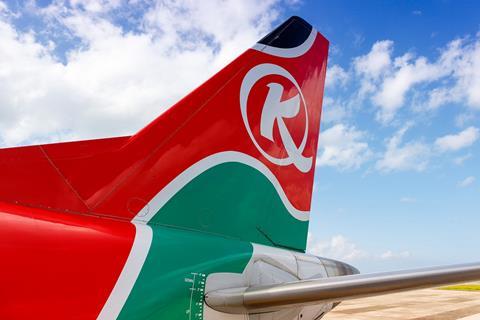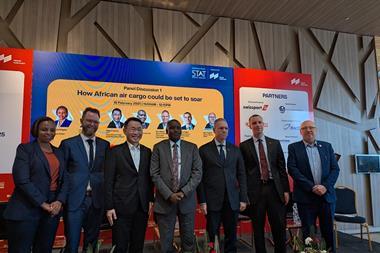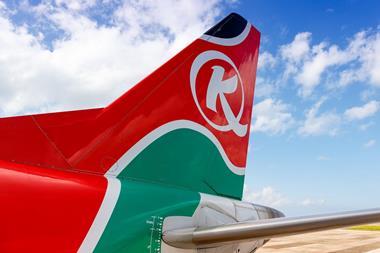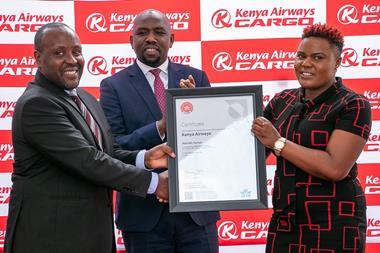
Kenya Airways has reiterated its interest in Boeing 737-800 freighters and also suggested it may acquire widebody freighters in future.
The Nairobi-headquartered airline said last year that it had acquired its two standard-body 737-800Fs because they offered a greater range than the 737-300Fs in its fleet and could help it expand its geographical network.
Speaking during a panel session at Air Cargo Africa in Nairobi, Peter Musola, head of cargo commercial at Kenya Airways, said the 737-800Fs are ”really the model that we are looking at”.
According to Planespotters, Kenya Airways currently has two converted narrow-body 737-300Fs, both 26 years old and delivered in 2013.
The airline also has two dry-leased, converted standard-body 737-800Fs, one of which is 23 years old and was delivered in January 2024 and the other which is 24 years old and was delivered in March 2024.
Musola also said stable capacity in operations is important to manage air cargo demand.
“The consistency of capacity is fundamental to the growth of the air cargo industry in Africa,” he stated.
”Africa gets a lot of the knee-jerk effects, you know whenever freighters are checking where to operate.”
He said this is why “Kenya Airways is very intentional in getting into the widebody freighter operations”.
Speaking further on potential investment into widebodies, he added that “we’ve had numerous discussions with a number of lessors who can offer us these kind of solutions”.
Musola added that ACMI is an attractive model for airlines as it serves as “proof of concept for operations before you take the huge jump into heavy investments in aircraft”.
Boeing’s regional director, market analysis, Aaron Tayler also said that Boeing’s World Air Cargo Forecast predicts that African air cargo volumes will double over the next 20 years.
Speaking about future freighter capacity in Africa, Tayler said that Boeing’s forecast for the African domestic market in the next 20 years is “a need for about 100 additional aircraft” meaning there is an expectation of “more than 150 aircraft by the early 2040s”.
But he added there is additional demand for capacity to serve the African air cargo market from carriers based elsewhere too.
He further said: “For the African market you need to look at replacement demand as well. The African fleet – a lot of it is getting quite old. In particular, there are a number of 737 classic freighters with an average age of well over 30 years old. There are some 727s flying around with an average age of 40, some are pushing 50 years old.”















